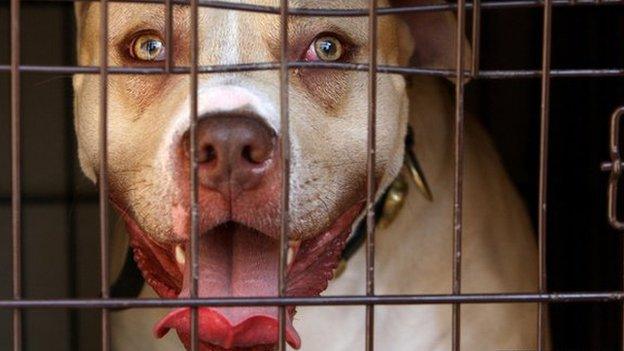The Dangerous Dogs Act 25 years on: How effective has it been?
- Published
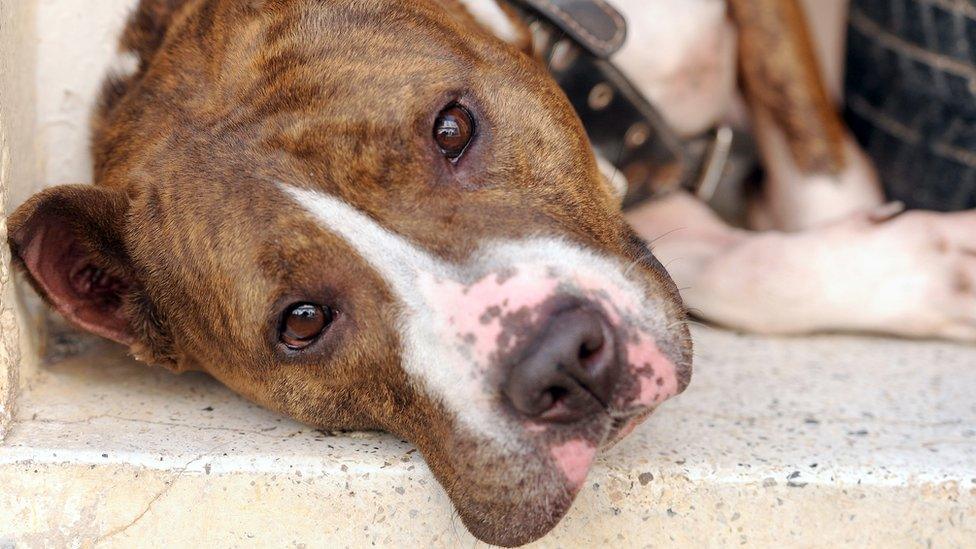
Twenty-five years ago, Britain became one of the first countries in the world to ban certain breeds of dog. BBC News examines whether the Dangerous Dogs Act has been effective.
Six-year-old Rucksana Khan was playing in a park near her home in Bradford when she was savaged by a pit bull terrier and taken to hospital with critical head and chest injuries.
The case was among 10 others in 1991 that were brought to Parliament, and prompted the then home secretary to introduce a bill promising "to rid the country of the menace of these fighting dogs".
The Act imposed restrictions on four different types of dogs traditionally bred for fighting, the pit bull terrier, Japanese Tosa, Fila Brasileiro and Dogo Argentino.

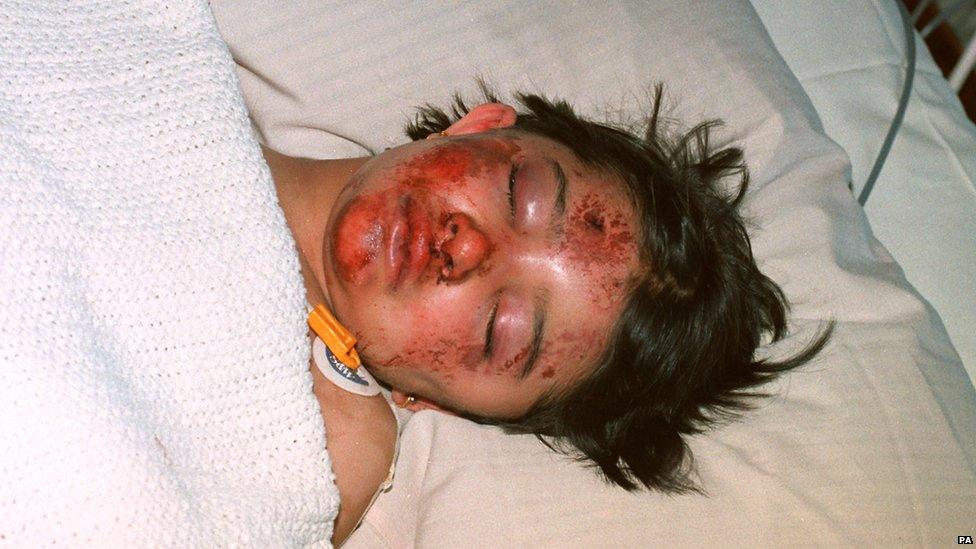
Rucksana Khan was playing in a park near her home in Bradford when she was savaged by a pit bull terrier and taken to hospital with critical head and chest injuries
It also made it an offence for an owner to allow any dog "to be dangerously out of control".
The law has proved controversial.
Those who have been victims of devastating attacks say the protection is needed.
Kerry Stevens, from Eastbourne, who was attacked 18 months ago, believes all pit bull type dogs should be banned.
Speaking in April she said: "I don't trust them at all, the damage done to me could've killed a toddler."

Kerry Stevens, who suffered serious leg injuries when she was attacked by a dog, said she believes the ban on pit bulls should remain
The attack happened when she went to drop off an item she had sold to a stranger online.
When she went to stroke the dog it pushed her to the ground and locked its jaws.
"It has made my leg look deformed and it's something I'll never be able to get back again," she said.
Following its seizure, the dog was destroyed by a vet.

The dog was destroyed by a vet after it was seized by police following Kerry's injuries
But the legislation has come under constant criticism.
The RSPCA believes the increase in the number of dog bites demonstrates the law has failed.
A spokeswoman said the legislation falsely led people to believe that non-prohibited types of dogs were safe.
The charity has prepared a report, 'Breed Specific Legislation - A Dog's Dinner', external, and has called for a government inquiry.
Dr Samantha Gaines, RSPCA dog welfare expert, said the law should look at dogs "on an individual case-by-case basis - irrespective of their breed or type".
More criticism has come from Battersea Dogs & Cats Home, whose report Dog Bites: What's breed got to do with it?, external labelled it a "poorly thought-out, knee-jerk piece of legislation that pays no regard to the consequences".
A spokeswoman said: "At Battersea we have to deal with those consequences - with dogs that are sentenced to be put to sleep on the grounds of their appearance, rather than anything they have actually done or any aggression.
"It is our view that quality ownership is much more important than breed."

The facts:
In the UK, since 1991, 30 people have died in dog-related incidents, with 21 involving dogs of breeds/types not prohibited by the law.
Battersea had to put down 91 pit bull type dogs last year that were healthy, because of the law.
The charity believed at least 71% of them could have been rehomed as family pets due to their friendly and affectionate nature.
NHS hospital admission statistics show there were 7,227 hospital admissions for dog bites last year which is a 6% increase year-on-year and a 76% increase over the last 10 years.
Source: RSPCA/Battersea Dogs Home

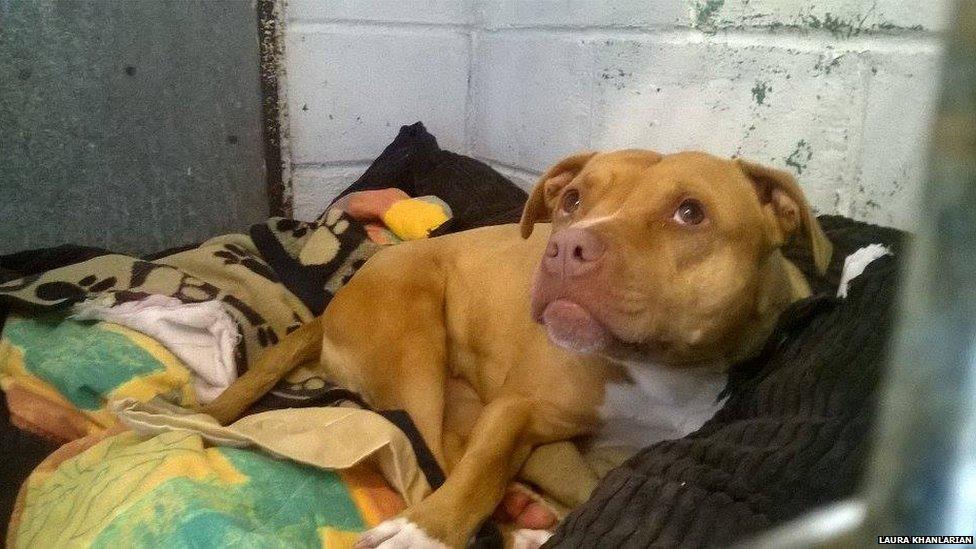
Stella was seized by Devon and Cornwall Police and caged for nearly two years without exercise
Earlier this year, the BBC reported how whistleblowers made a series of allegations about seized dogs in the care of Devon and Cornwall Police that were put in cages and then, due to safety concerns, not exercised.
Those included Stella, who had been caged for nearly two years, and Vinnie, a Rottweiler whom whistleblowers said had also not been exercised.
Stella was eventually spared and given a new owner.
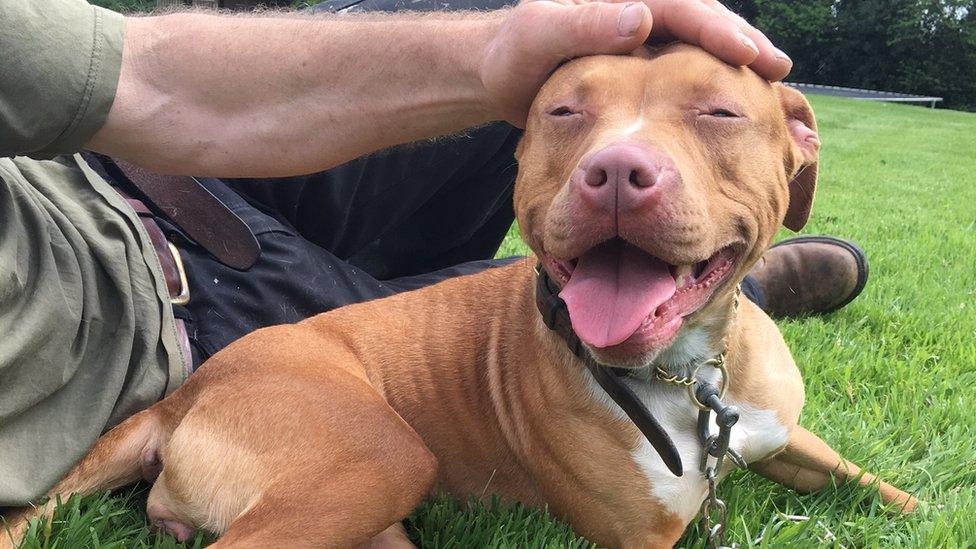
Stella now has a new owner and receives regular exercise at her new home in the countryside

Other owners have had heartbreaking experiences.
Fudge was five months old when he was destroyed.
His owner, Carole from Liverpool, had rescued him at just six weeks old and had no idea he might one day be suspected to be a prohibited type.
Carole previously said: "I am left with a legacy of guilt for being naive and a fear of ever owning a dog again. The law is proven not to have worked and needs radical change."

Fudge was rescued at six weeks old but his owner had no idea he might one day be suspected to be a prohibited type
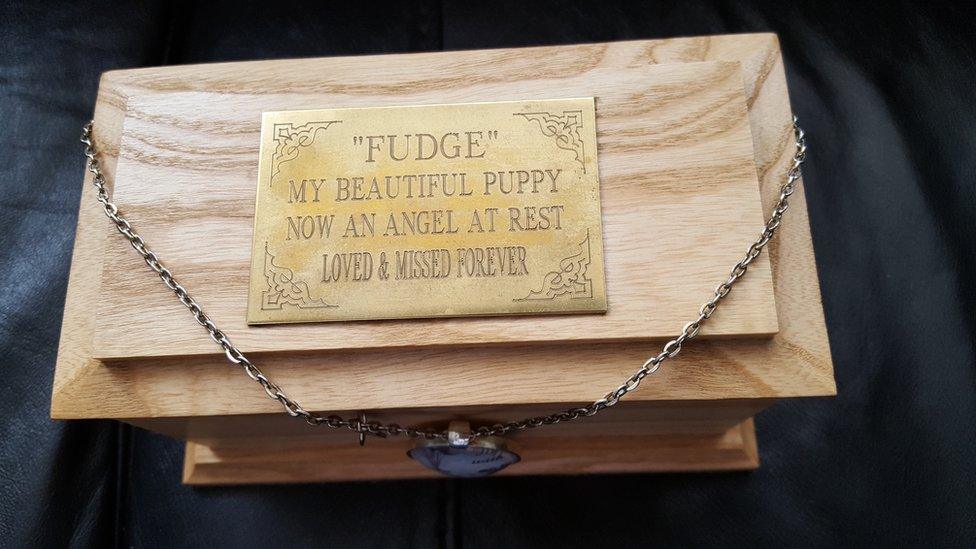
Fudge was five months old when he was destroyed

The Department for Food Environment and Rural Affairs, however, said the Act has been modified throughout the years to make it more effective.
Measures introduced allow police and local authorities to require owners to attend dog training classes or muzzle their dog in public, a spokesman said.
"Dog attacks can have horrific consequences for victims and families, so the prohibition of certain types of dog under the Dangerous Dogs Act is crucial to help us deal with the heightened risk they pose," he said.
- Published22 May 2012
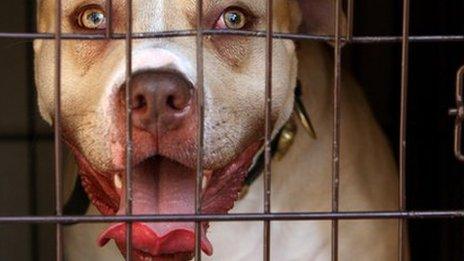
- Published29 February 2016
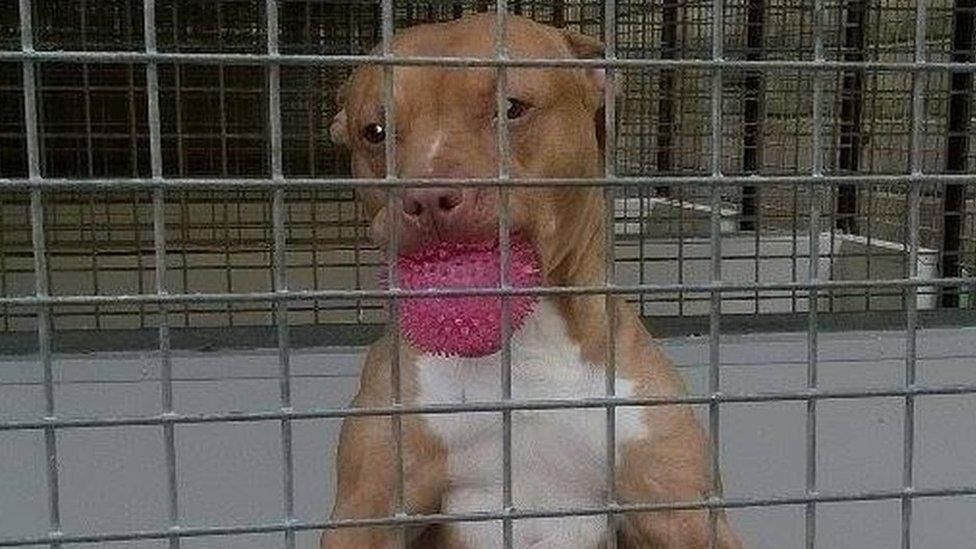
- Published6 September 2015
